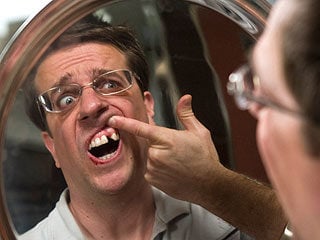
Once your adult teeth are fully grown, they are supposed to last a lifetime, right? If you have a decayed, injured, or loose tooth, that may not be the case. Although smoothing out the tooth or a filling may be a restorative option, it may not be the most beneficial depending on the circumstances of the tooth. In that case, an extraction may be the best solution.
Here at Advanced Periodontics & Implant Dentistry, we offer several restorative treatment options to make your smile complete again. We care for the overall health of our patients and guide them in the right direction to ensure the best possible results. Before diving into treatment options, let’s discover the difficulties that may arise when trying to save a tooth and the importance of replacing them.
Why Can’t My Tooth Be Saved?
Unfortunately, depending on the severity of the case, not all teeth can be saved. Let us unfold some of the common reasons why saving a tooth may not be possible:
- A serious tooth infection that is irreversible. If an infection in the pulp of the tooth occurs, a root canal will be performed first in order to save that tooth. However, if the infection is too severe or if you have a compromised immune system, an extraction may be required.
- Periodontal disease. Periodontal or gum disease is one of the most common reasons for extracting natural teeth. If not treated properly and immediately in its early stages, it can damage the root and surrounding tissue and bone that support the tooth.
- Trauma. Severe trauma or injuries can damage a tooth beyond repair, leaving an extraction as the only solution. Saving the tooth will always be the first priority, but removing it completely may be the best option in this case.
Importance Of Replacing My Tooth
Every single tooth in your mouth has an important job to do. Your teeth allow you to chew, help in the pronunciation of words, and make it easier to speak. Having even just one tooth missing can affect all of those factors. When a tooth is extracted, having no replacement should never be an option. Not replacing your tooth can cause future complications with your oral health. Reasons why replacing a tooth is essential are as follows:
- Teeth may shift out of normal alignment. When all teeth are in place, they aid in maintaining the surrounding teeth in proper alignment. Once there is an open gap, the surrounding teeth tend to shift to fill the space.
- Your physical appearance may alter. The loss of a tooth can cause the jaw bone to deteriorate and the facial muscles to weaken.
- Negative effect on your quality of life. Your teeth allow you chew the food you consume. Having missing teeth can make it difficult to chew certain foods, such as nuts, vegetables, and meats. As a result of this, many people with missing teeth suffer from poor nutrition.
My Tooth Is Gone – What Are My Options?

To avoid such outcomes, it is important to know your replacement options. The type of option best for you will depend on the severity of your case. Here are common replacement options for missing teeth:
- Dental implants. The most common and effective replacement option are dental implants. Dental implants act like an artificial tooth root in which a crown will be attached to. This option provides patients with a structurally complete replacement. Dental implants are aesthetically pleasing, feel, and function like natural teeth.
- Dental bridge. An alternative option to dental implants is a dental bridge. A dental bridge is composed of two or more dental crowns and an artificial tooth. The bridge is held in place by the adjacent teeth. Bridges can help prevent bone loss in your jaw and also keep your remaining teeth from shifting out of position. Although they are durable and long-lasting, this option does require reshaping the adjacent natural teeth to ensure a secure fit for the bridge. Therefore, the loss of one tooth affects several teeth in the process.
- Partial or full dentures. Partial and full dentures are other teeth replacement options that are able to replace a few teeth (partial denture) or an entire arch of teeth (full denture). Dentures are typically made of a durable resin material that is fabricated to look like natural teeth. While dentures will restore the appearance of your smile and partial function, they do not help prevent bone deterioration. Because dentures are removable and not fixed into the jaw, the jaw bone will diminish over time.
Advanced Periodontics & Implant Dentistry Can Replace Your Tooth!

If you are missing teeth, it is very important to look into your options. Here at Advanced Periodontics & Implant Dentistry, we understand that tooth loss can cause an array of complications. To avoid these complications, we offers a variety of dental implant options to help you achieve a healthy, beautiful smile. For many reasons, choosing dental implants are the most effective and durable restorative option due to their longevity and stability.
If you struggle with missing teeth or you are at risk of losing teeth, call Advanced Periodontics & Implant Dentistry at (877) 440-5841 to schedule your complimentary consultation.

Dr. Richard Nejat, DDS
Dr. Richard Nejat is a board-certified periodontist offering leading-edge dental implant placement and gum surgery techniques. Dr. Nejat has completed many years of advanced training at highly recognized medical institutions and is a member of numerous leading professional organizations. Recognized as a foremost New York dental implants provider, Dr. Richard Nejat is frequently invited to lecture at professional seminars and symposiums. Dr. Nejat has been practicing since 1997.
Dr. Nejat is a member of the American Board of Periodontology, American Academy of Periodontology, Academy of Osseointegration, Northeastern Society of Periodontists, New Jersey Society of Periodontists, New York Dental Society, and International Congress of Oral Implantologists.


